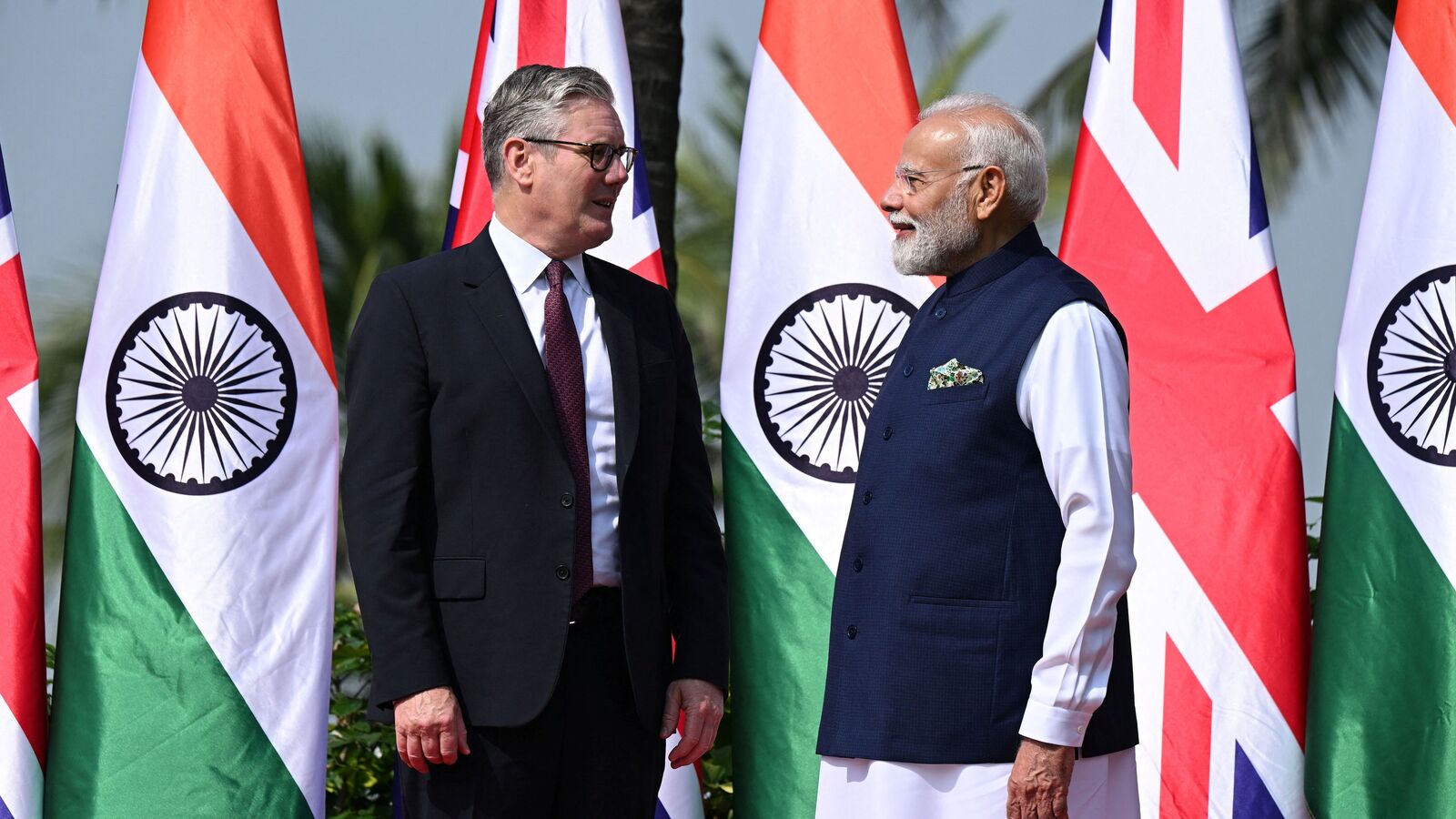- UK-India trade deal cuts tariffs, boosts auto and defense cooperation, boosts £1.3 billion Indian investment in Britain, and targets £25.5 billion trade growth by 2040.
View personalized offers
The recently signed UK-India trade agreement is set to reshape bilateral economic relations in the automotive and defense sectors. During his two-day visit to India, British Prime Minister Keir Starmer, along with Prime Minister Narendra Modi, hailed the agreement as a foundation for deeper commercial cooperation between the two countries.


The agreement, signed in July 2025, aims to cut tariffs on key goods including textiles, whiskey and automobiles. It also provides greater market access for businesses in both countries and is expected to increase trade by £25.5 billion (approximately) 3,025 billion pounds by 2040. Within just three months of signing, trade and investment between India and the UK has already increased by £6 billion (approx.) 711 billion), reflecting an early surge in confidence among industries.
Impact on automotive sector
The reduction in tariffs on cars is expected to be a game-changer for the automotive industry in both countries. For Indian automakers, the deal provides easier access to the UK market, opening the door for brands like Tata Motors, Mahindra and Maruti Suzuki to expand exports of electric and small cars. This supports India's goal of becoming a global EV manufacturing hub, aligning with “Make in India” and green mobility initiatives.
For British carmakers, lower import duties will make luxury brands like Jaguar Land Rover, Aston Martin and Bentley more competitive in India. With tariffs on high-end vehicles reduced, Indian consumers may see more affordable luxury car prices in the coming years. It could also encourage joint research and development in clean mobility solutions, as both countries emphasize sustainability and innovation in transportation.
New investment commitments
UK confirms 64 Indian companies will collectively invest £1.3 billion ( 153.4 billion in the UK across all sectors including automotive manufacturing, clean energy and tech startups). “This is just the beginning. This is the time to invest in the United Kingdom, to invest in this relationship and to invest in our shared future,” Starmer said while addressing business leaders at the India-UK CEO Forum.
Political context and perspective
Despite occasional differences over geopolitical issues such as the Russia–Ukraine conflict, both governments stressed that their economic partnership remains strong. PM Modi emphasized the “unique synergy” between India's growth dynamism and the UK's expertise, while Starmer reaffirmed his commitment to operationalizing the trade deal within a year. For India, the deal not only boosts trade but also strengthens its quest for industrial modernisation, self-reliance and global competitiveness in key sectors such as automotive, defense and clean energy.
Get information about upcoming cars in India, electric vehicles, upcoming bikes in India and cutting-edge technology that is changing the automotive landscape.
First publication date: 09 October 2025, 20:00 PM IST

